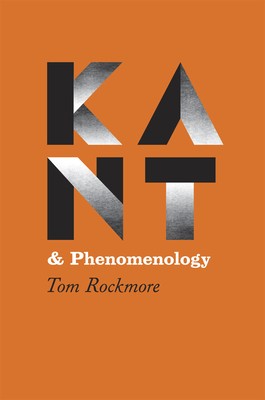
- We will send in 10–14 business days.
- Author: Tom Rockmore
- Publisher: University of Chicago Press
- ISBN-10: 0226817857
- ISBN-13: 9780226817859
- Format: 15.2 x 22.9 x 1.5 cm, softcover
- Language: English
- SAVE -10% with code: EXTRA
Reviews
Description
Phenomenology, together with Marxism, pragmatism, and analytic philosophy, dominated philosophy in the twentieth century--and Edmund Husserl is usually thought to have been the first to develop the concept. His views influenced a variety of important later thinkers, such as Heidegger and Merleau-Ponty, who eventually turned phenomenology away from questions of knowledge. But here Tom Rockmore argues for a return to phenomenology's origins in epistemology, and he does so by locating its roots in the work of Immanuel Kant.
Kant and Phenomenology traces the formulation of Kant's phenomenological approach back to the second edition of Kant's Critique of Pure Reason. In response to various criticisms of the first edition, Kant more forcefully put forth a constructivist theory of knowledge. This shift in Kant's thinking challenged the representational approach to epistemology, and it is this turn, Rockmore contends, that makes Kant the first great phenomenologist. He then follows this phenomenological line through the work of Kant's idealist successors, Fichte and Hegel. Steeped in the sources and literature it examines, Kant and Phenomenology persuasively reshapes our conception of both of its main subjects.EXTRA 10 % discount with code: EXTRA
The promotion ends in 10d.05:56:58
The discount code is valid when purchasing from 10 €. Discounts do not stack.
- Author: Tom Rockmore
- Publisher: University of Chicago Press
- ISBN-10: 0226817857
- ISBN-13: 9780226817859
- Format: 15.2 x 22.9 x 1.5 cm, softcover
- Language: English English
Phenomenology, together with Marxism, pragmatism, and analytic philosophy, dominated philosophy in the twentieth century--and Edmund Husserl is usually thought to have been the first to develop the concept. His views influenced a variety of important later thinkers, such as Heidegger and Merleau-Ponty, who eventually turned phenomenology away from questions of knowledge. But here Tom Rockmore argues for a return to phenomenology's origins in epistemology, and he does so by locating its roots in the work of Immanuel Kant.
Kant and Phenomenology traces the formulation of Kant's phenomenological approach back to the second edition of Kant's Critique of Pure Reason. In response to various criticisms of the first edition, Kant more forcefully put forth a constructivist theory of knowledge. This shift in Kant's thinking challenged the representational approach to epistemology, and it is this turn, Rockmore contends, that makes Kant the first great phenomenologist. He then follows this phenomenological line through the work of Kant's idealist successors, Fichte and Hegel. Steeped in the sources and literature it examines, Kant and Phenomenology persuasively reshapes our conception of both of its main subjects.

Reviews